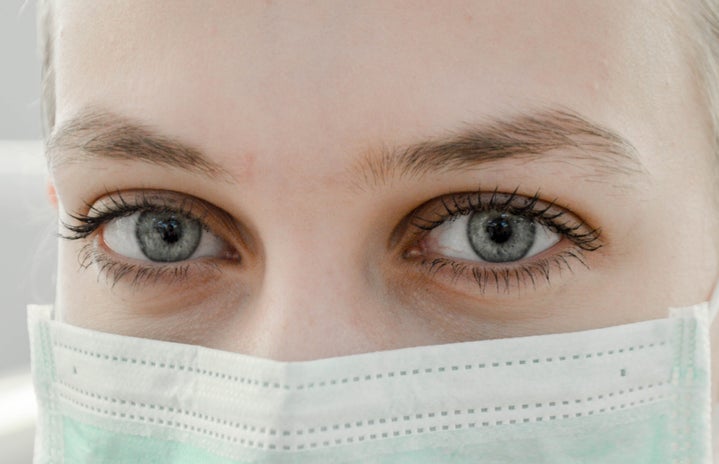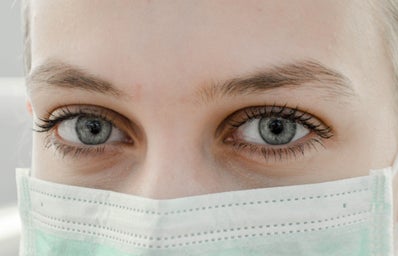I think it’s quite apparent that we, as a Notre Dame community, messed up the first week back on campus. By August 19, ten days after the first day of classes, Notre Dame’s positivity rate reached 17.2%, more than three times the rate WHO recommends for states to reopen. As a result, Notre Dame moved to online instruction for two weeks.
For on-campus students, this meant two weeks of minimizing non-essential activity; on-campus students still had access to on-campus mass, dining halls, LaFortune Student Center, Legends, and Rohr’s. Student gatherings (limited to 10 people) were still permitted as long as masks were worn at all times and in all places (both outside and inside).
For off-campus students, this meant no access to campus and its amenities for at least two weeks. While off-campus students were also allowed to gather in groups up to 10 with masks and physical distancing, this proved to be a greater challenge. With no access to quads and outdoor spaces on campus, and being prohibited from gathering inside with anyone who does not live in their apartment unit or home, off-campus students were out of options provided by the University. In light of COVID, off-campus students’ mental health should be more important to the University than ever. Even if students would prefer to live on campus, many, including myself, were unable to due to health or spatial reasons. Many immunocompromised and high-risk students were unable to live in communal-style residence halls, and many juniors whose study abroad programs were cancelled last-minute were not offered a spot back in their residence halls. Because of this, the off campus population is larger and at higher risk than ever at Notre Dame.
While it is true that the rise in positive COVID cases can be traced to off-campus gatherings, the way Notre Dame has attempted to flatten the curve has led to accidental stigmatization of off-campus students. Notre Dame’s approach to flattening the curve can be boiled down to two things: moving classes online and telling on-campus students to stay away from those living off campus. During his message to the Notre Dame community on August 18, Father Jenkins, whether intentionally or not, communicated one thing very effectively: off-campus students are the problem. For example, when attending virtual office hours for my Physics Lab, my TA asked me where I lived. When I told her I lived off campus, she scoffed and condescendingly said “don’t be going to any ragers.”
Notre Dame’s scapegoating of off-campus students is not only exclusive and hurtful, it is also dangerous. While Notre Dame has clearly stated that “the common thread among cases is a lack of mask wearing and physical distancing,” most of the ND community has accepted that COVID can only be acquired through attending off-campus gatherings. While off-campus students are told to quarantine in their apartments for two weeks, on-campus students are allowed to freely gather in small groups.
If the university is able to ban off-campus students from campus, how are we supposed to access the resources we need? When off-campus students are not allowed on campus, they are left without access to the dining halls and other campus amenities. The University Counseling Center is offering tele-health services to better provide their services to students during COVID. However, the private rooms that can be reserved for tele-mental health sessions for students needing a confidential and quiet space are “only available to students residing on-campus during the two week pause.”
Also, off-campus students do not have access to their residential halls, neither physically nor virtually. One of Notre Dame’s selling points is its residential life, and how “living in community supports students’ formation as they deepen their faith, cultivate moral virtues, develop healthy relationships, become servant leaders, and reflectively and prayerfully discern their future.” However, something that Notre Dame does not include in this pitch is how when a student moves off campus, their relationship with their residential hall completely changes. For my residence hall, there is a separate list-serv for off-campus students. Because of this, off-campus students are often accidentally excluded from hall programming and events, even when they are virtual.
Rather than trying to protect those on-campus from the students off-campus, Notre Dame should be focusing on how to provide the best care to all of its students. While it is true that COVID spikes occurred at off-campus parties, that does not mean that all off-campus students bear the sole responsibility for the spread of COVID. Notre Dame needs to stop stigmatizing off campus people as the problem and shift their focus to gatherings where people are unmasked and not socially distancing. Instead of focusing on separating the two student populations, Notre Dame should have focused their efforts on a two week quarantine for all students in order to create a COVID free bubble in the Notre Dame community. Rather than using off-campus students as a scapegoat, Notre Dame needs to be providing access to extra resources to ensure that off-campus students are able to maintain their physical and mental well-being. Instead of dividing the student population, Notre Dame should focus on unifying the community for our common good and safety.
It is important to clarify that my criticisms of Notre Dame do not mean that I don’t still love it. It is possible to love something and still hope for change. Even living off-campus, I am thankful for the opportunity to be back in South Bend with my friends and peers. Hopefully, Notre Dame will continue decreasing its COVID cases and, as Fr. Jenkins said, “writing one of the great comebacks in Notre Dame history.” We are ALL in this together HERE at Notre Dame.


